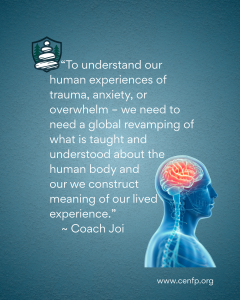
Trauma, Attachment Styles, and Identity
- #attachmenttheorymyth, #cenfp, #coercivecontrol, #debunkedtheory, #emotionalabuse, #insufficientacademictraining, #mentalwellness, #narrativecontrol, #psycho-trash, #psychologicalabuse, #socialmediainfluence, #socialmediaisnotknowledgecentral, #targetedpartnerabuse, #theroreticalmisrepresentations, #traumabondmyth, #whattraumareallyis, #youaren'twhathappenedtoyou, Abuse
- #attachmenttheorymyth, #cenfp, #coercivecontrol, #debunkedtheory, #emotionalabuse, #insufficientacademictraining, #mentalwellness, #narrativecontrol, #psycho-trash, #psychologicalabuse, #socialmediainfluence, #socialmediaisnotknowledgecentral, #targetedpartnerabuse, #theroreticalmisrepresentations, #traumabondmyth, #whattraumareallyis, #youaren'twhathappenedtoyou, Abuse
How faulty theories impact you and your well-being
How often do you listen to a podcast, read books, or stumble across that perfect social media post that describes a condition that resonates with what you are going through? Many of us are searching for the answers. Social media has become “the authority for life.” It has all the answers. We just need to find the perfect meme or podcast, then we’ll know what to do, what we have, and what to call it.
Your Identity is not in a Social Media Post
Initially, social media was a great way to connect with people in our lives we have lost contact with, or to share great adventures with those who don’t live close by. Unfortunately, it has morphed into a place for answers, as if it is ‘Knowledge Central.’
We turn there to ask questions like,
- What’s wrong with me?
- Why does my husband cheat?
- Do I have an inner child wound?
- How to deal with a narcissist?
- What is narcissistic supply?
There are some smart people on these public forums, and many of the phenomena they address are real issues we experience as human beings. The problem we see is the conflation of people’s issues (problems) with the guesses and intensity of proposed reasons behind what is being experienced. These guesses are often supported by what the author/speaker uses as brain or science-based evidence. A lot of what is out there is wrong, misapplied, and even debunked, and no longer considered accurate science.
I’ve talked about a few of them here, here, and here.
The danger of looking for our resonance from social media authorities is that we attach ourselves and the meaning of our experience to someone else’s explanation, making it fit us. It becomes who we are, not just a possible statement about what happened.
You Aren’t What Happened to You
In this life, we all will face adversity. Some people feel like they attract it, like Murphy’s Law, or a law of attraction/magnet-type philosophy. This type of social brainwashing gets into our minds, creating belief systems that can cost us our well-being. Yet some people write books on this topic, and other’s create psychological or behavioral terms without the proper research and data to support the idea.
In our opinion, this is one of the most unethical outcomes of social sciences. Human beings are not fragile or broken.. We live in a world of challenges that, in some cases, exact a human toll. Those who live with ongoing abuse, for example, may have a difficult time with the predictions (assumptions) they make of what is happening and why it won’t stop.
When we soak our thoughts in the social narratives, attaching them to ourselves as if they are our identity, we wear ourselves down. We might even build cognitive traps that can be difficult to release and reframe.
When we think like this graph describes, we create prediction traps that are difficult to update.

This type of prediction pattern is often the way we attempt to avoid the pain and discomfort of a less-than-perfect world, a less-than-perfect relationship, family life, or career path.
We all face adversity in this world. It is part of the human experience. Sooner or later, we will all have a traumatic experience. Some of us, like women who find themselves married to an abuser, live with daily adversity, but the meaning we make of these experiences will have everything to do with how we will navigate through the adversity in healthy or unhealthy ways.
Please understand that the comments in this post are not negating the pain and betrayal we experience as abused women (or anyone else’s painful life experiences). The point here is that we need to be careful with the psychological prescriptions we write for ourselves about what is happening.
Stay with me as we attempt to shine some light on what is helpful and what is not.
Theoretical Misrepresentations
Students spend countless hours in undergrad and grad courses, thinking they are learning the important theories that explain human behavior. Unfortunately, those theories are just great guesses. We build universities and online classrooms, coaching schools, and even leadership training programs filled with some of the smartest people who will be taught some of the most indestructible theories, who then promote them to their clients.
Let’s talk about a few things that may have been picked up from an influencer that you may have believed fit your experience.
- Attachment theory has morphed from what originated in studies of infant and caregiver relationships into something that presents itself in adult relationships, offering believable reasons for why you have issues within your adult relationships.
- Truth – the bonding and attaching process in a developing infant and its caregiver is nothing like the relationship of two consenting adults in a co-building relationship. Conflating an infant who depends on their caregiver for survival with a life partner where both have the autonomy to fend for themselves, make their way in the world, and opt in and out of relational negotiators is not the same thing. You may have boundary issues. You may create unreasonable dependencies or expectations, but the way we make adult connections is not the same as infant attachment.
- Trauma bond has also been associated with these so-called adult attachment problems, suggesting that one can be in a negative engagement with another human being who controls, is physically or psychologically abusive, and one or the other of the individuals will develop some sort of bond with the abuser/abusee.
- Truth – a trauma bond is developed between parties who share the same experience, such as soldiers in combat, victims of a natural disaster, a family that experiences a house fire, or a tragic automobile crash. These types of individuals go through the event together from the same perspective. The experiences may vary slightly by individual, but in general, those who go through the event together share the story and may become bonded because of the type of trauma. A victim does not bond to a brutal perpetrator, regardless of what may be seen in the actions she chooses to keep herself safe (see the post on Stockholm Syndrome for more information).
- Trauma (some of the myths) is stored in the body; damages our brain; and is with us our whole life.
- Truth – In essence, trauma is a difficult life experience. The meaning we make about this experience will impact our future life exponentially. We often attach our identity to traumatic events, sometimes requiring a lot of processing or therapy to get through the experience. How we carry the story (meaning how we make sense of the experience) makes all the difference in how we progress through it. Because our brains will predict our future experience from the story we create about what happened to us in the past. (*See the post on Predictive Brains for more information). As human beings, all traumatic events are weighty expenses for our brains. The process of making meaning or sense of these experiences correctly has a long-term impact on us. When we are careful with our psychological assessments of our experience, we will predict better and more safely for ourselves. When we adjust and update past predictions that happen when we are in the throes of the experience, we learn, grow, and heal. We should take care not to write prescriptions for ourselves, self-assign, or adopt meaning from a well-crafted social media meme.
Weeding the Good from the Bad
Since most of us are not trained in psychology or neuroscience, we will lean on the believed experts to help us understand our human experience. Weeding out what is accurate from what has become pop-psychology takes skill and additional training, beyond what many received in academic coursework.
When we take social media posts and podcasts as if they all come from subject matter experts, we are giving more credit to the fact that it doesn’t require much to hang up cyber-shingles, pop out a well-designed website with beautiful offerings and start telling people why they have a problem and what the problem means.
The fact that this is happening en masse should suggest caution. Not all training is the same, and some do not have any training at all. Either way, personal bias informs their platform (as it does in any scientific study) – ours included – it would be inappropriate to suggest differently.
What we are suggesting in this post is that the (hopefully) well-meaning people with large followings on social media can, and do, share information that is, well, just wrong. Do your due diligence when searching for answers. Be careful not to attach too readily to their explanations.
As we stated earlier, we tend to turn too many things into psychological events that should not be assessed as such. Each little tug in the body can have multiple meanings, even though that tug might have recently been fear at seeing a spider on the floor next to you. The next time you feel that tug, you may predict wrong because of that previous experience. Ruminating over what it all means can be damaging.
Guard Your Mental Wellness

If guarding your mental wellness with a different approach is what you are looking for, what we offer at Center for Peace may be worth investigating. If the same stuck-focused narratives are not working for you, schedule a session soon. We would be honored to walk alongside you as you stretch and strengthen the wonder that is within you.


